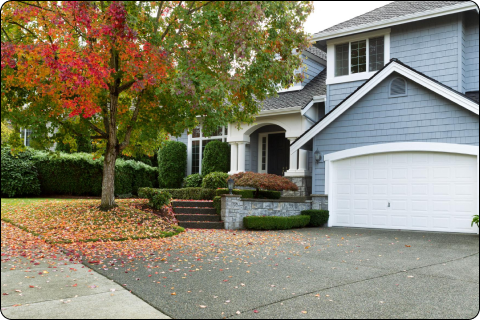Refinance and save money when you need it the most
Refinance and save money when you need it the most
Cash out
Lower your payment
Save half a point or more on your interest rate and enjoy zero lender fees

Thousands of loan products
Close as fast as 10 days
Low rates
Free quote with no credit check
1-hour pre-approvals
Ultra fast underwriting
Refinancing helps you cross things off your worry list
- Debt Consolidation
- Lower Monthly Payments
- Lower Interest Rate
- Pay Off Loan Faster
- Access Your Equity
- Renovate
- Eliminate Private Mortgage Insurance

Mortgage Refinancing Options

Cash-Out Refinance
Cash-In Refinance
This type of mortgage refinance allows you to pay a lump sum of cash into the principal balance and acquire a loan with better terms while increasing equity in your home. This would be an option for homeowners who have some funds to work with and want to negotiate a better loan agreement. It could reduce your monthly mortgage payment or shorten the life of the loan if you wish.


Rate and Term Refinance
Reverse Mortgage Refinance
This type of mortgage is technically a refinancing option, but it is only available to homeowners who are 62 and above and have built a lot of home equity. Essentially, you would no longer have to make monthly payments on the loan while you are living. Instead, you would receive cash based on the equity in your home. The remaining debt will be paid to the lender upon your death either through the sale of the home or payments from your heirs after a normal mortgage refinance.


Short Refinance to Lower Monthly Payment
How to Know if Refinancing Your Mortgage is the Right Decision
There are a few circumstances when it makes sense to refinance your mortgage, many of which are listed above.
First, if you want to lower your monthly payment or reduce the life of the loan, then a term and rate refinance loan would make sense, resulting in monthly savings. Second, if you want to put down a significant lump sum of cash toward the principal for more home equity and change the terms of your loan, then you can refinance and get a lower loan amount.
Third, if you want to stop paying mortgage insurance premiums, you can refinance your existing mortgage when you reach an 80% loan-to-value benchmark. Since you have kept up with your monthly payments and built home equity, there is less risk to the current lender, so you can remove the mortgage insurance from your costs.
Additionally, there are streamline refinancing options for FHA loans, VA loans, and USDA loans where you can obtain a refinanced mortgage with better terms than your current mortgage.

Frequently asked questions
What are my estimated closing costs?
Content goes here ..
If rates drop, how soon can I refinance?
Content goes here ..
Is it a good time to purchase a home?
Content goes here ..
Can I put $0 down?
It is possible to purchase a home with little or no money down, but it can be more difficult to qualify for a mortgage and the overall costs may be higher.
Some government-backed loan programs, such as FHA loans, VA loans, and USDA loans, allow for a low or zero down payment. These loans are typically available to first-time home buyers, veterans, and low-income borrowers.
However, it’s important to keep in mind that these loans may come with additional costs, such as mortgage insurance, which can add to the overall cost of the loan.
Is an FHA loan better than a conventional loan?
FHA loans and conventional loans are both options for purchasing a home, but they have some key differences that may make one a better choice for you than the other. Here are a few key points to consider when comparing the two:
Down payment: FHA loans typically require a down payment of 3.5% of the purchase price, while conventional loans may require a down payment of as little as 3% for first-time home buyers or 5% for other borrowers.
Credit score: FHA loans have more lenient credit score requirements than conventional loans. FHA loans typically require a minimum credit score of 580, while conventional loans typically require a minimum credit score of 620.
Income requirements: FHA loans have more lenient income requirements than conventional loans, which can make them a better option for borrowers with lower incomes.
Mortgage insurance: Both FHA and conventional loans require mortgage insurance, but the cost and duration of the mortgage insurance can be different. FHA loans require mortgage insurance for the life of the loan, while conventional loans require mortgage insurance only until you’ve built up 20% equity in your home.
Loan limits: FHA loans have loan limits, which may restrict the amount you can borrow. Conventional loans do not have loan limits, and this may allow you to borrow more.
Closing costs: FHA loans can have higher closing costs than conventional loans.
District Lending Can Help You Refinance
Whether you want to lower your monthly payment, eliminate mortgage insurance, take advantage of a better credit score for lower interest rates, switch to an adjustable-rate mortgage (ARM), acquire a new fixed-rate loan, reduce your loan term, or take advantage of your home’s equity, District Lending can help with refinancing your mortgage. Talk to your financial advisor or contact our team to discuss refinance rates and what mortgage loans would be right for your refinancing goals. See how cash-out refinancing, new mortgage terms, a lower interest payment, or a switch to fixed-rate or adjustable-rate mortgages can save you money through refinancing your mortgage.

Our knowledge at your convenience
Know exactly what to expect from your loan
- No documents required.
- No commitment.
- No fine print.






